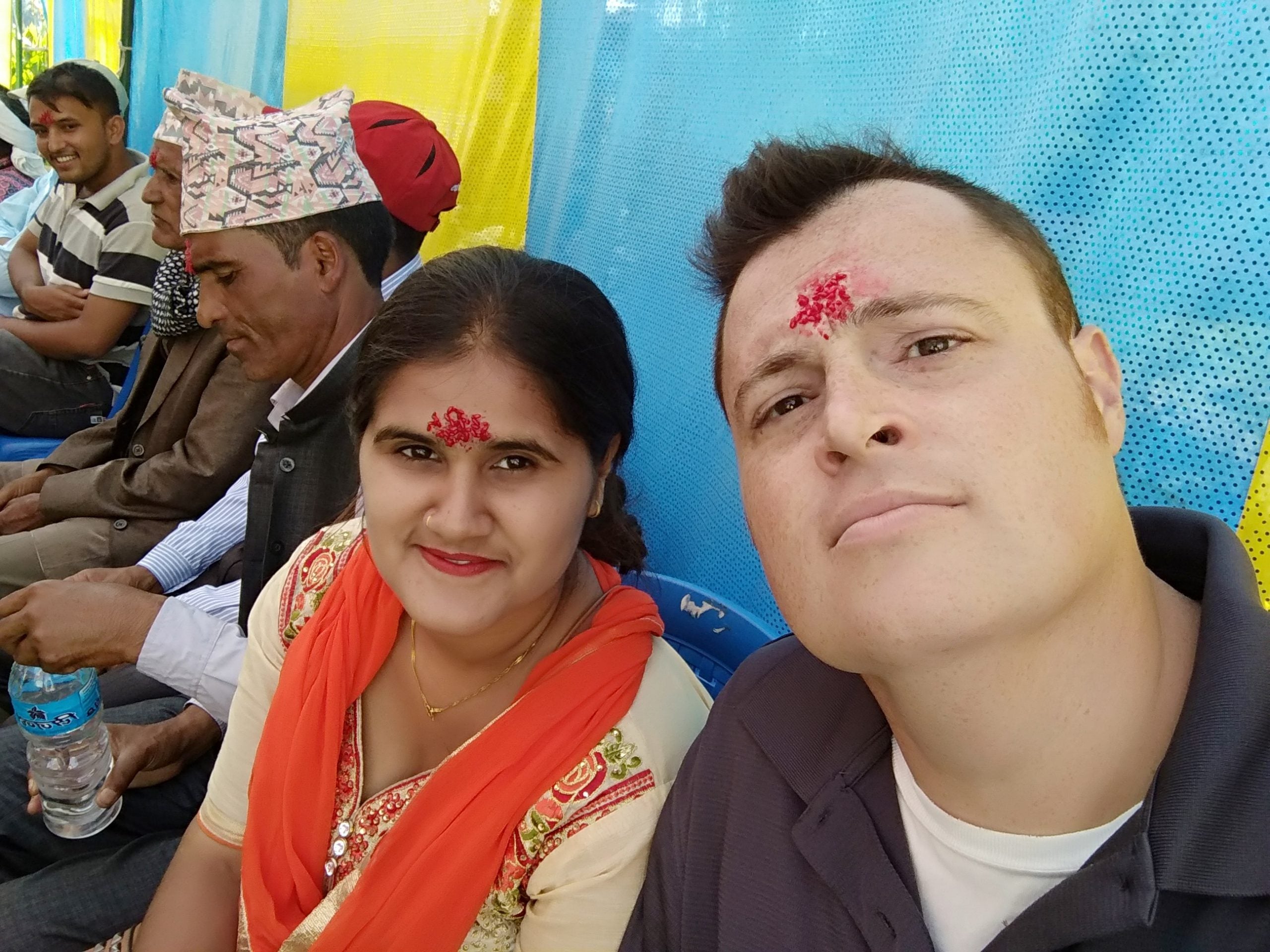English Language Fellow, David Arnold is based in Surkhet Nepal, which is located approximately 250 miles west of Kathmandu in the Mid-Western Development Region. There, Arnold enjoys magnificent views of the Himalayan Mountains, the stunning scenery of ancient rivers, and the tranquil greenery of terraced rice paddies.
Arnold’s primary project in Surkhet is supporting the Mid-Western University. As an advocate for student-centered teaching methods, Arnold has introduced pre-service and in-service teachers to a number of games and activities that get students up and active. He is currently in the planning stages of opening a writing center at the university to foster a collaborative space for students to strengthen their English language writing skills.
Some of Arnold’s secondary projects include supporting the English Access Microscholarship program and the American Corner in Surket. Arnold has particularly enjoyed working with the Access Program since arriving in Nepal. “The most meaningful part of the experience has been giving workshops and advice to the Access teachers, and watching them incorporate what they have learned into their lessons,” he states. Since desks are sometimes bolted to the ground in Nepali classrooms, Arnold has helped teachers solve class seating issues through a variety of strategies such as station-based learning and outdoor learning activities. Many teachers have expressed gratitude for the engaging teaching methods that Arnold has introduced, and are incorporating such methods into their own teaching practices.
Arnold is joined by his wife and 5-month old son in Nepal (pictured on the right). Together they enjoy eating Nepali food, which includes rice, dhal (lentils), fresh vegetables, and momo dumplings. Arnold states, “We watch cows, buffalo, sheep, and goats graze while hens and roosters cluck and crow.”
Arnold describes the Nepalese as early risers. He says that most people wake up at 4am, work from 10-4, and are in bed by 8pm. When describing life in Surkhet, Arnold shares that many local people “walk great distances to town, tend to livestock, play soccer in nearby fields, fly kites, grow rice, deal with power outages, sell fruits and vegetables, go to the university, and enjoy a peaceful life with their families.”
Since arriving in Surkhet, Arnold has adjusted to a relaxed pace of life and a low-tech teaching style. A teaching colleague at the Mid-Western University named Dipendra has been especially welcoming to Arnold and his family. Arnold and his family have celebrated several Nepali holidays at Dipendra’s home, experiencing a full-taste of Nepali life. As Arnold fondly notes, “Dipendra has really helped my wife and I with everything here, and we wouldn’t have been able to survive without him.”
► Looking Back and Looking Forward
Arnold’s TESOL jour ney started long before arriving in Nepal. Over the last ten years he has been teaching English in Vietnam. While there, Arnold worked in language centers, public high schools, and was the Director of the EAP program at Broward College in Ho Chi Minh City.
ney started long before arriving in Nepal. Over the last ten years he has been teaching English in Vietnam. While there, Arnold worked in language centers, public high schools, and was the Director of the EAP program at Broward College in Ho Chi Minh City.
Looking to the future, Arnold exclaims that he would “love to participate in the fellowship for as long as possible!” He states, “I think that this fellowship will help further demonstrate how serious I am about teaching English and helping people.”
For the time being, Arnold and his family will continue to enjoy the beautiful scenery and welcoming community in the small town of Surkhet, Nepal.





